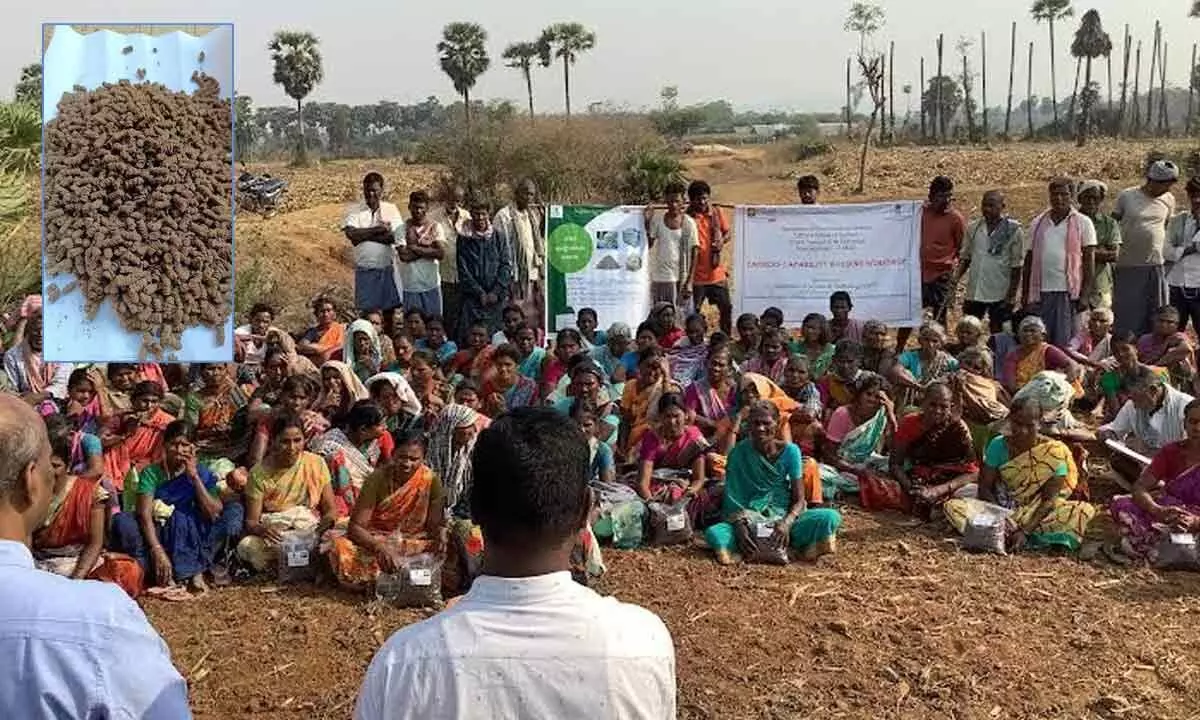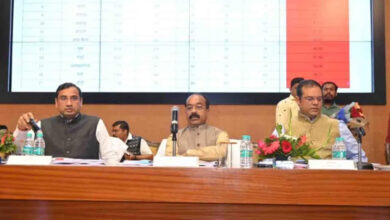Empowering farmers through organic manure pelletization

Visakhapatnam: In a move to reap benefits of sustainable agricultural practices and help farmers get desirable yields, GITAM Deemed to be University has embarked on converting food waste into compost pellets and encouraging farming communities to replace synthetic fertilisers with organic ones.
Supported by Science for Equity Empowerment and Development (SEED) under the Department of Science and Technology, the agenda aims at maximising the process of converting food waste into compost pelletisation, educating farmers to stick to indigenous practices, conserving soil health and enhancing crop diversity involving farmers’ associations.
Following increasing global concerns over fertiliser security, the collaborative venture intends to empower farming communities with a massive awareness drive and show them ways to adopt high yield, low cultivation cost strategies by converting food waste into home-grown compost pelletisation.
After reaching out to the farmers in Srikakulam, Vizianagaram and parts of Visakhapatnam through its intense campaigning on preparing the compost pellets incorporating scientific methods, the institution intends to give hands-on training to select farmers next.
After getting hands-on training in producing pellets, the trained farmers will in turn educate the communities on the subject. “Currently, leftover food from the hostel is used for making organic pellets as they are dense in protein, lipids, carbs, macro and microelements required for natural fertiliser. The collected leftover food is processed in a digestion machine which aids in converting into compost within 24 hours,” explains N Srinivas, who is leading the project as principal investigator along with Ch. Ramakrishna and K Suresh Kumar from Department of Environmental Science, GITAM.
Given the huge quantities of food waste in urban centres, the project intends to generate wealth from waste, make organic farming affordable for farmers through ample generation of compost pellets and encourage the communities to be less dependent on synthetic fertilisers.
“A large chunk of farming communities came forward to adopt indigenous practices to produce organic pellets. Although the technology transfer is being taken care of, farmers do require a centre to apply the knowledge learnt into a viable project by setting up a pelletiser unit,” elaborates Prof. Srinivas.
Since compost pellets have a longer shelf life, farmers prefer such organic fertilisers over synthetic ones. By converting food waste collected from hostels, temples, hotels and other urban centres, the institution plans to take the endeavour way forward, catering to a larger section of farming communities.
















